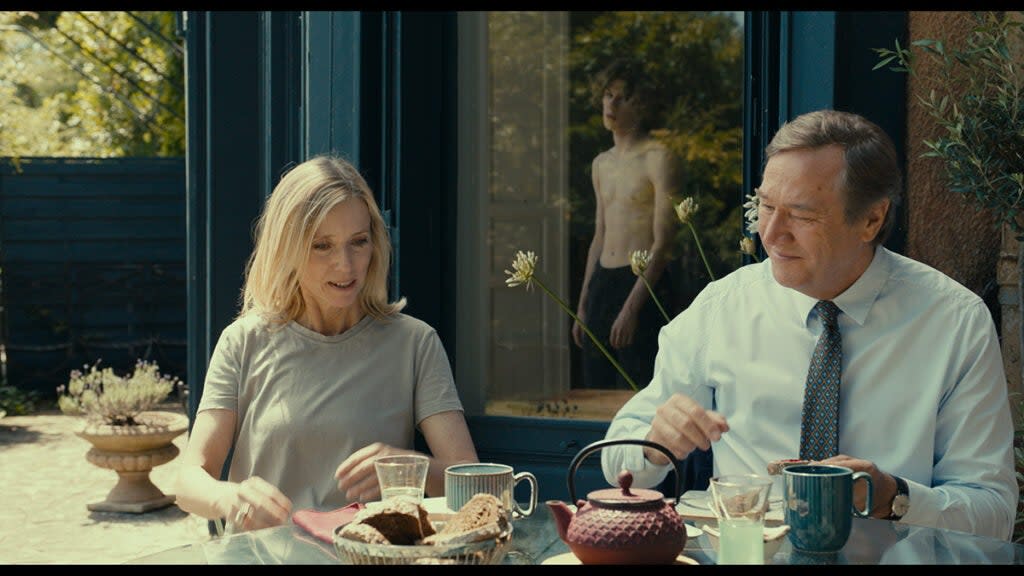‘Last Summer’ Review: Catherine Breillat’s Scandal-Courting Drama Draws Yawns

Here’s something to ponder through the lulls of “Last Summer:” Can a film without much spark really be said to fizzle? Such thoughts danced across many a mind at this year’s Cannes Film Festival, where Catherine Breillat’s scandal-courting transgression drama mostly inspired yawns.
More inert than inept, “Last Summer” arrived in Cannes with fraught expectations: This is Breillat’s first film in a decade and a faithful remake of May el-Toukhy’s acclaimed “Queen of Hearts” — and within the Venn diagram of cinephiles who impatiently awaited Breillat’s follow-up to 2013’s “Abuse of Weakness,” and journalists who reviewed and celebrated that 2019 Danish drama you could probably fit the entire Palais.
Like a cover song that follows the same notes but changes the emphasis, “Last Summer” tracks a high-powered juvenile rights attorney who begins a taboo fling with her underage stepson. The lawyer here is Anne (Léa Drucker, from “Custody”), a content and aloof mother of two who dulls her mid-life boredoms with wine. After making love to her sixtyish husband she might call herself a “gerontophile,” complimenting Pierre (Olivier Rabourdin) for his “lived in body that lost the firmness of youth,” but her eyes speak a different language when Pierre’s troubled son Theo (Samuel Kircher) comes to stay.
As in the original version, “Last Summer” hints that Anne herself fell victim to adult predation as a child even younger than Pierre, but Breillat has little use for such cyclical pathology and would bristle at the word “predation.” Indeed, the French filmmaker’s main overhaul is to remove the psychological dimension altogether, focusing instead on the physical expression of desire. Anne’s face and body move one way when Pierre gets down to business with the same absentmindedness he used to gulp down a plate of lasagna and a glass of scotch just minutes before, and in manners wholly different when the son takes his place.
Also Read:
Cannes Day 10: ‘The Pot au Feu’ Makes Audiences Hungry and a Competition Controversy Erupts
Of course, the lead up to that first encounter involves a prolonged bout of prodding, pushing, teasing and testing that extends both ways. At the very least the only adult in the situation – and one, not for nothing, acutely aware of the precise legal statute for this kind of relation – does nothing to rebuff the boy’s advances. Breillat’s camera likes to get close, often allowing long scenes to play out in unbroken close-ups as it tracks this queasy dance where lust overtakes rational action.
Only, Breillat really doesn’t have many other steps, and once the duo wind-up in a shared embrace the film has nowhere to go. The narrative beats on, hewing the same path (with one notable deviation) as the original film, but the filmmaker’s tactile emphasis only really works for one small section. Anne is not just a vector for greater forces; the character also makes choices and drives the action forward in a way that Breillat’s inner-life aversion never tries to make sense of.
Well-acted by performers asked to externalize conflicting impulses, and plotted interestingly enough following an existing blue-print, “Last Summer” has a completely listless quality when the narrative requires any understanding of the characters’ interior lives. Breillat will sometimes land on a choice composition or two (including that striking still above this review, which says just everything, doesn’t it?) but is completely checked-out when her film requires any other note or shading. Rather like its aloof protagonist, the film never ignites and hardly disturbs; it mostly goes through the motions.
Check out TheWrap’s Cannes magazine here and all of our Cannes 2023 coverage here.
Also Read:
30 of the Biggest Directors at Cannes – Pedro Almodóvar, Martin Scorsese and More (Exclusive Photos)


